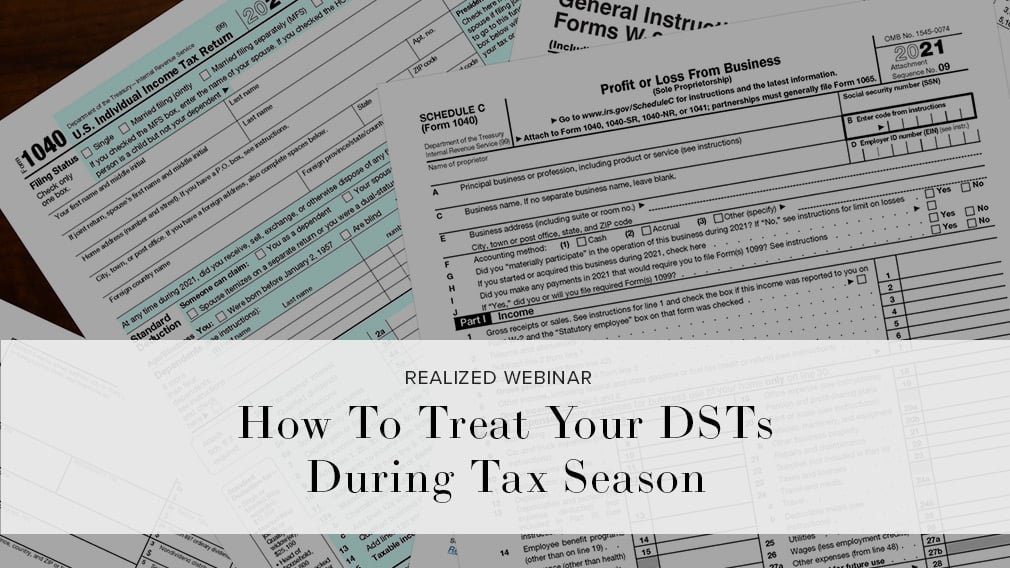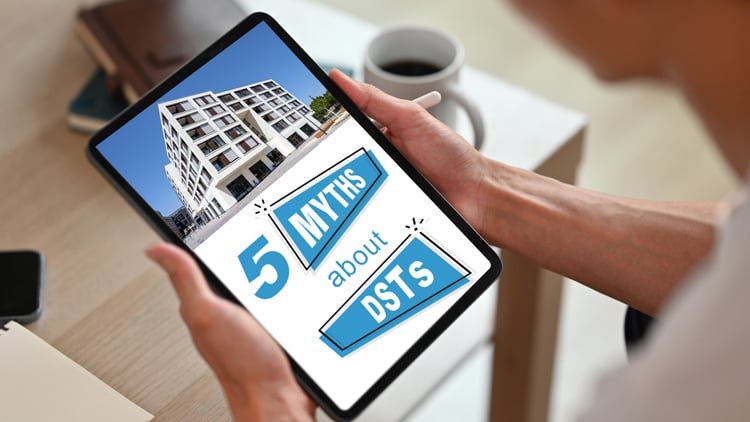The Realized Team’s Picks
[Webinar Recap] How To Treat Your DSTs During Tax Season: Filing Taxes in Multiple States

Here at Realized, we help real estate investors invest in Delaware Statutory Trusts (DSTs) using 1031 exchanges. 1031 exchanges allow investors to legally defer capital gains taxes when buying and selling real estate. DSTs also offer a number of other potential benefits for real estate investors - they allow you to expand your real estate portfolio without having to manage the properties yourself, can provide diversification in a real estate portfolio, and can provide access to commercial-grade real estate an investor may not be able to invest in on their own.
Who is Exempt From Paying Capital Gains Tax?

Most real estate investors are quite familiar with capital gains taxes – but you may be able to exclude this tax when selling your primary residence.
When Do You Pay Capital Gains Tax?

Examining the question of when you pay capital gains tax has two components: first, what triggers the requirement to pay the tax, and second, what is the timing of the payment?
Retirement Portfolio Asset Allocation by Age: What You Need to Know

As investors approach retirement, their portfolio asset allocation changes. This change is due to a decrease in volatile assets. Older investors decrease portfolio volatility because they soon will start taking distributions. Taking distributions from a volatile portfolio can negatively impact investment principal and, thus, retirement income.
How to Know if You Qualify for a 1031 Exchange

So you’ve done your research and made your decision: you want to take advantage of a 1031 exchange to defer taxes related to your real estate investment. So how exactly do you qualify for this tax strategy?
The Top 10 Things You Should Know About 1031 Exchanges

Internal Revenue Code §1031 provides real-estate investors with a powerful tool known as a “1031 exchange.” What does it do exactly? It allows investors to hold on to gains they’ve made from their real-estate investments without having to pay taxes on the gains. That’s pretty sweet.
What is the 3K Capital Loss Rule?

Declaring losses on tax returns is one way to offset capital gains. Reducing capital gains in this way reduces the investor’s potential tax bill. But there are certain rules to follow, and not all losses can be deducted for the current year.
You Can 1031 Exchange Into A REIT, Here's How

Can you transition a property into a Real Estate Investment Trust (REIT) using a 1031 exchange? Yes, but it requires caution. While the IRS doesn't consider direct exchange of REIT shares as 'like-kind,' a sequence of steps that are followed can facilitate the successful completion of the exchange. This implies that transforming an investment property into a REIT via a 1031 exchange is feasible but entails meticulous compliance with IRS rules.
5 Myths About Delaware Statutory Trust (DST) Funds That You Need to Know

There are many myths about Delaware Statutory Trust (DST) fund investments that we wanted to help clear up. Delaware Statutory Trusts have their benefits and limitations, but let’s address some of the common misconceptions that we often hear from investors.



